 Unfortunately, True Believers, I haven’t had time to write a blog post this week. Sorry. At least not here. I did get one written for the website of my upcoming podcast, Kaijuvision Radio, though.
Unfortunately, True Believers, I haven’t had time to write a blog post this week. Sorry. At least not here. I did get one written for the website of my upcoming podcast, Kaijuvision Radio, though.
There’s always next week!
 Unfortunately, True Believers, I haven’t had time to write a blog post this week. Sorry. At least not here. I did get one written for the website of my upcoming podcast, Kaijuvision Radio, though.
Unfortunately, True Believers, I haven’t had time to write a blog post this week. Sorry. At least not here. I did get one written for the website of my upcoming podcast, Kaijuvision Radio, though.
There’s always next week!
My blog this week is a simple one. First, I need to update this info. Second, I need time for my “real” writing. 😛
Anyway…
Convention season is in full swing, and if you’ve been following my social media, I’ve already been to several shows, though not as a vendor. Regardless, I’ll be attending several conventions as either a vendor or an attendee between now and the end of the year. What follows are my currently scheduled appearances. I will probably add and subtract appearances as time goes on.
“Official” Appearances
 Gen-Con 5 in Indianapolis, Indiana (Aug. 17-20) – I return to the “best four days in gaming” for the sixth year in a row. The show will be held at the Indiana Convention Center and Lucas Oil Stadium. I’ll be in the massive vendor hall in Authors Avenue, which next door to Artist Alley and near other literary-themed vendors and guests. I’ll hopefully have a preview chapter and cover art for my next book (that’s something I should blog about soon…). I’ll also have a new story in the annual anthology Missing Pieces, which compiles stories written by Gen-Con authors.
Gen-Con 5 in Indianapolis, Indiana (Aug. 17-20) – I return to the “best four days in gaming” for the sixth year in a row. The show will be held at the Indiana Convention Center and Lucas Oil Stadium. I’ll be in the massive vendor hall in Authors Avenue, which next door to Artist Alley and near other literary-themed vendors and guests. I’ll hopefully have a preview chapter and cover art for my next book (that’s something I should blog about soon…). I’ll also have a new story in the annual anthology Missing Pieces, which compiles stories written by Gen-Con authors.
You can learn more about the convention here.
![]() Fantasticon Fort Wayne in Fort Wayne, Indiana (Oct. 28-29) – Last year was so fun, I had to return to my new “hometown” comic-con. The traveling show will once again be held at the Grand Wayne Center. I’ll be joined by my writer friend/collaborator Nick Hayden and possibly my Kaijuvision Radio co-host Brian Scherschel. By then, my new book should be out, so this might be your first chance to get signed copies from me.
Fantasticon Fort Wayne in Fort Wayne, Indiana (Oct. 28-29) – Last year was so fun, I had to return to my new “hometown” comic-con. The traveling show will once again be held at the Grand Wayne Center. I’ll be joined by my writer friend/collaborator Nick Hayden and possibly my Kaijuvision Radio co-host Brian Scherschel. By then, my new book should be out, so this might be your first chance to get signed copies from me.
Learn more about this show here.
Stay tuned about possibly signings at a bookstore in Goshen, Indiana, and author fairs at libraries in Fort Wayne and Kendallville, Indiana!
“Unofficial” Appearances
 G-Fest XXIV in Rosemont, Illinois (July 14-16) – I’ve been a Godzilla/kaiju fan for a long time, but this will be my first time attending this show, which is essentially the San Diego Comic-Con of the giant monster fandom. It’ll be at the Crowne Plaza Chicago O’Hare. Brian Scherschel and I will be there promoting Kaijuvision Radio, although we won’t be behind a table in the vendor hall. No, we’ll be mingling with our fellow fans and attending film screenings and events.
G-Fest XXIV in Rosemont, Illinois (July 14-16) – I’ve been a Godzilla/kaiju fan for a long time, but this will be my first time attending this show, which is essentially the San Diego Comic-Con of the giant monster fandom. It’ll be at the Crowne Plaza Chicago O’Hare. Brian Scherschel and I will be there promoting Kaijuvision Radio, although we won’t be behind a table in the vendor hall. No, we’ll be mingling with our fellow fans and attending film screenings and events.
You can learn more about this show here.
I may also attend Indy Pop-Con, Grand Rapids Comic-Con, and Grand-Con. I’ll keep you posted if I do.
See you around, True Believers!

Science fiction writers have always tried to predict the future with their stories. Something I’ve been meaning to write about for a long, long time is how my books have done that. Or at the very least been a little ahead of the curve. No, I haven’t seen any giant cyborg dragons attacking Moscow or been whisked away to another world via a port-a-potty. However, I started to notice a few years ago that some of the concepts I used in Pandora’s Box and its companion short stories (“Suicide Soldier,” in particular) began to appear in current events. It was a bit frightening, honestly.
Back in 2014, Ebola was all over the news. An outbreak started in West Africa, but it also popped up in several developed countries, including the United States. It was brought over by travelers who had no idea they were infected. Once it was discovered they carried the virus, they were isolated to be treated. As you would expect, many people were scared by this. They feared an unstoppable outbreak in their own country. The thing of it was they didn’t understand how the virus was spread (it’s through bodily fluids) or have faith in the CDC to contain those infected.
Regardless, that fear was aggravated by some who said ISIS could use Ebola as a bio-weapon—by intentionally infecting operatives and having them interact with as many people as possible to spread it. This could be done because it would be difficult to smuggle out the infected bodily fluids. Considering ISIS was known for using suicide bombers, it seemed to be a natural progression that they would start infecting operatives with deadly diseases in order to spread them. They could potentially kill far more people that way.
Around this same time was when the Syrian refugee crisis became a bigger hot-button issue for several reasons, in particular because ISIS was smuggling operatives into other countries amid those refugees. Given the severity of the crisis, the compassionate response from rest of the world, and the difficulty of vetting refugees, it was a prime means of infiltration.
So, there’s an outmanned and outgunned terrorist organization that, at least at one point, was considering infecting suicide operatives with a deadly disease in order to spread it and was already infiltrating other countries with operatives disguised as refugees.
Like I said, I was a bit scared when I put two and two together.
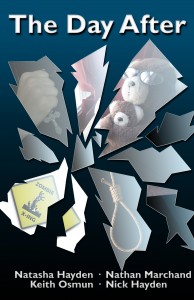
For those who don’t know, I first conceived my novel Pandora’s Box back in 2002, but it wasn’t published until 2010. A key component of the story is a would-be world dictator beginning a non-nuclear world war by unleashing a horrific genetically-engineered virus in the most powerful nations on Earth, thereby forcing a two-prong crisis. The disease is essentially rabies on steroids (think the Rage virus from the movie 28 Days Later), which not only demoralizes the dictator’s enemies, the infected serve as cannon fodder, which presents a moral crisis (is it right to kill the infected on the battlefield?). I had this backstory in my head as I was writing the book, but I could never find a place to include it. That was until several of my writer friends put together the anthology The Day After, for which I submitted my story “Suicide Soldier.” The main character in that is one of the dictator’s operatives, a young woman with nothing to live for, who is sent to the United States as a tourist in order to spread the virus, which she is carrying.
As you can see, my stories actually became more relevant as time went on. I’d originally been inspired to write Pandora’s Box by all the gun control talk in the news (the book addresses this on a macro scale by using nuclear disarmament), and while that’s still a huge issue to this day, I was shocked to see how ahead of things my imagination was when these other issues started hitting the news. While the Ebola outbreak has faded from the public eye, the refugee crisis remains a point of contention, especially as terrorism increases in Europe.
I won’t pretend that I (or my stories) have any answers for how to deal with these problems. At least not any big answers. What do I mean by that? Well, you’ll have to read my stories to find out.
Have you ever written a story that ended up becoming “prophetic”? What was it about? What real-life events did it “predict”?
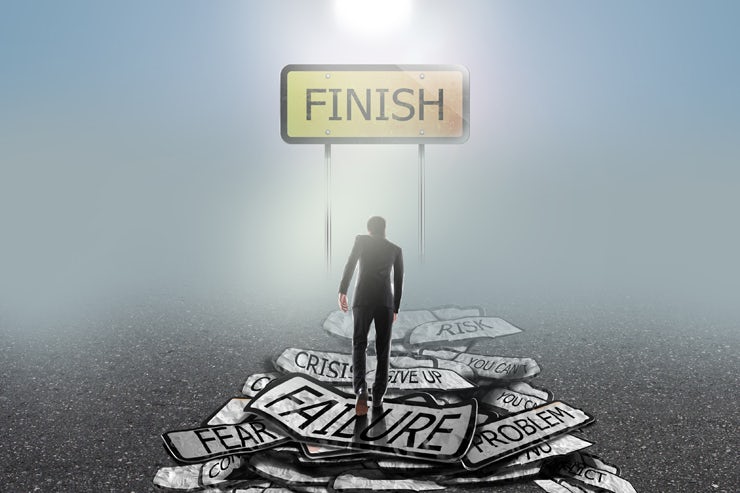 In a recent episode of the GameChurch Podcast, the interviewee briefly touched on a concept he called “the noble failure.” As he explained it within the context of his experiences creating video games, he defined it as making efforts to achieve something, failing at it, and then using that experience as a stepping stone toward the goal.
In a recent episode of the GameChurch Podcast, the interviewee briefly touched on a concept he called “the noble failure.” As he explained it within the context of his experiences creating video games, he defined it as making efforts to achieve something, failing at it, and then using that experience as a stepping stone toward the goal.
Sounds basic, doesn’t it? Like something everyone understands and accepts. Unfortunately, the interviewee mentioned that it was something he thought Americans had little, if any, appreciation for while Europeans were a bit more open to it.
I think he’s right.
Don’t get me wrong, I love my country, but in America, failure is failure is failure. If a product isn’t successful, it’s seen as worthless. The same is true of people. If someone isn’t racking up achievements, they’re seen as pathetic. It doesn’t matter if it’s the first, second, third, or 100th attempt. All that matters is success. That’s how their value is measured.
This is both pretentious and shortsighted. It defines people by what they do and what they have and not by who they are. It allows no grace for outside factors—most of which are beyond people’s control—to have an effect on someone’s ability to achieve. No, results are all that matter. Are you a jobless college graduate? You’re a failure. Did you flunk a test in school? You’re a failure. Did your new business close? You’re a failure.
I’ve learned this from hard experiences. I lost my first full-time, post-college job just before the “Great Recession,” which made it ten times harder to find a new one. I already felt like a failure for losing my job, and now I couldn’t get a new one. I did everything I could to improve my chances (updated and rewrote my resume, applied to different places, tried to network, etc.), but nothing seemed to pan out. On top of that, I was still trying to find a publisher for my first novel and get freelance articles published, but I wasn’t having much luck. Then, after a year of grueling effort, I finally got a job—as a part-time delivery driver. I told myself I’d hold onto it while I looked for something better. But as the recession dragged on, that “something better” never seemed to come.
I was berated by some people during these times. A girlfriend dumped me because she thought I wouldn’t be a good provider. Another girlfriend’s father made accusations that I would force his daughter to be the breadwinner while I sat at home writing (and not making any money at it, he implied). The frequent criticisms of my generation created the “lazy, entitled millennial” stereotype, which was hammered into my head. Again, all that mattered was results. Setbacks were unacceptable. Trajectory was insufficient. Failure was the unpardonable sin.
What’s sad is the stories of great people are replete with failures. Depending on who you talk to, J.K. Rowling’s first Harry Potter book, Harry Potter and the Sorcerer’s Stone, was rejected nine to 12 times before being accepted. Now it’s a multibillion dollar empire. Can you imagine being one of those 12 editors? They’re eating crow now! Thomas Edison used thousands of different materials trying to make a lightbulb filament and famously said, “I have not failed. I’ve just found 10,000 ways that don’t work.” Then he found one that did, and it helped usher in the modern world.
Or how about this superb inspirational Nike commercial:
Michael Jordan, the greatest athlete to play basketball and the winner of six NBA championships, had a long string of failures. If he’d let those define him, he would’ve given up and never accomplished what he did. It was those failures that taught him the lessons he needed to move forward.
That’s my advice to all of you. Don’t let your failures define you. Learn from them. Move forward a wiser person. Most importantly, don’t let anyone judge you because of your failures. As Bernard Baruch (not Dr. Seuss) said, “Those who mind don’t matter, and those who matter don’t mind.” Your real friends/fans/supporters will be gracious and understand. Let them encourage you not to give up on your dreams and goals. We all need that.
What do you think of the idea of “the noble failure”? Does it sound good to you? What “noble failures” have you experienced? What did you learn from them?
 DC Comics hasn’t had much luck with movies lately. They’ve been striving to catch up with Marvel Comics’ unsurpassed cinematic universe with several films of their own—with mixed results. Then this past weekend Wonder Woman was released. A lot was riding on it. It was the first female-led superhero film in 12 years (and none of the others were successes). It was the first time Wonder Woman was ever on the big screen. DC desperately needed a film to save their “extended universe.”
DC Comics hasn’t had much luck with movies lately. They’ve been striving to catch up with Marvel Comics’ unsurpassed cinematic universe with several films of their own—with mixed results. Then this past weekend Wonder Woman was released. A lot was riding on it. It was the first female-led superhero film in 12 years (and none of the others were successes). It was the first time Wonder Woman was ever on the big screen. DC desperately needed a film to save their “extended universe.”
And it was, well, wonderful.
This blog isn’t a review of the film. What I want to talk about is the first and most important reason why I think this film succeeded. It’s something that took DC’s film division four tries to learn, and it’s something you as a writer can benefit from knowing.
Get your characters right.
One of the major problems the DCEU films have had is they’ve tried so hard to reimagine and/or “modernize” their already iconic characters that they’ve almost ceased to be those characters. Superman is brooding and doubtful. Batman is paranoid and murderous. And don’t even get me started on the Joker.
Here, though, DC doesn’t screw around. They present Wonder Woman—a character I’m sure they were too scared for years to put on screen—as she should be: earnest, inspirational, and above all, compassionate. I’ve not read many Wonder Woman comics (though I suddenly want to read more now), but I’ve always thought that she was written best when she was written as I just described. Yes, she is an Amazon warrior. Her strength rivals Superman’s and her fighting prowess probably exceeds Batman’s. But hers is a distinctly feminine strength. Her drive to fight comes from a desire to comfort and protect. In the film, she witnesses the horrors of war, seeing wounded soldiers and civilians, and without speaking a word, the audience knows her heart is breaking. She’s naïve, but she’s not brooding, doubtful, or murderous. It’s a welcome change from what DC’s been doing with their films.
Along the same lines, this film isn’t steeped in feminist propaganda. By that I mean making all the men in the film worthless idiots (like what was done in last year’s horrid Ghostbusters remake). Wonder Woman is determined to forge ahead and make her own way, but she gladly seeks and accepts help from men. The male characters, especially Steve Trevor (Chris Pine), are all strong, competent, and well-written characters. Wonder Woman even (gasp!) falls in love with one of them and (SPOILER WARNING) renews her faith in humanity because Trevor told her he loved her before dying heroically. In other words, Wonder Woman saw the best of mankind thanks to men.
Let this be a lesson to you, writers: believe in your characters and let them be true to themselves. Don’t let culture or trends dictate how you write them. That’s a one-way ticket to cookie-cutter clichés. Write the characters you want to write. Make them unique. Make them your own. What audiences want isn’t always what they need, or even what they want in the long run. That’s why you need to let your characters be true to themselves, and by extension, you remain true to yourself as an artist and storyteller.
What did you think of Wonder Woman? What are some ways you’ve learned on how to write your characters right?
I should be writing my stories right now, but instead I’m firing off a blog because I feel I owe it to you, my readers, since I’ve been lax on keeping up with regular blogging the past month.
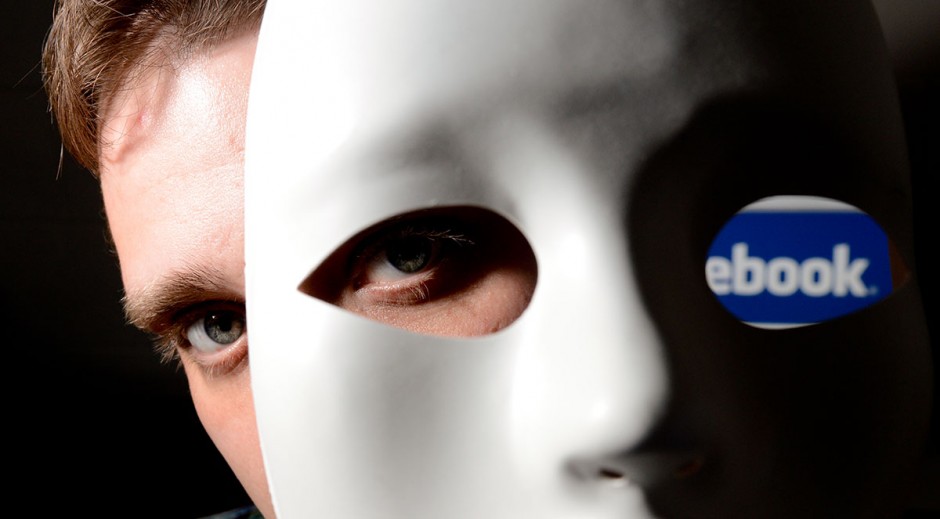 Have you ever noticed how different people act on the Internet? “Trolls” are one thing, since the anonymity of cyberspace allows people to behave in ways they probably wouldn’t in real life. I’m talking about how people act on social media. In most cases, there isn’t as much anonymity. However, people use sites like Facebook and Twitter not only to connect with people they know, but also to reconnect with people they haven’t seen in years. This gives them a great deal of control over their image, especially with the latter. They essentially become their own PR agents. They can omit the bad and talk only of the good; they can put spin on the bad to hide the truth; or they can use it as a public outlet for grievances.
Have you ever noticed how different people act on the Internet? “Trolls” are one thing, since the anonymity of cyberspace allows people to behave in ways they probably wouldn’t in real life. I’m talking about how people act on social media. In most cases, there isn’t as much anonymity. However, people use sites like Facebook and Twitter not only to connect with people they know, but also to reconnect with people they haven’t seen in years. This gives them a great deal of control over their image, especially with the latter. They essentially become their own PR agents. They can omit the bad and talk only of the good; they can put spin on the bad to hide the truth; or they can use it as a public outlet for grievances.
More often than not, though, people use social media to make themselves look better. How many times have you or someone you know logged into Facebook only to see another engagement or pregnancy announcement, among other such things? Many people, since they only see these positive things in Facebook feeds, assume that their friends are living far better lives than them. They don’t see the lost jobs, the break-ups, and/or the daily frustrations because those people don’t share such things. This leads to depression because, as one study puts it, the “highly idealized representations of peers on social media elicits feelings of envy and the distorted belief that others lead happier, more successful lives.” In other words, social media is a mask. It allows people to create something of a “secret identity.” They’re afraid to be honest because they want people to admire them or are afraid of criticism.
On the other hand, as I’ve learned personally, being honest on social media about what’s happening in your life can lead to backlash. Share the “wrong” thing—whether it be a political opinion, a struggle, and/or bad joke—and it will turn you into a lightning rod. You’ll be bombarded with comments from people who don’t understand you, get lectures from those who may or may not mean well, or be attacked. Internet communication lacks the nuances of interpersonal interaction, so much of the message is lost. Regardless, this leads to the above problem of only sharing the positive to play it “safe.” It’s a “damned if you do, damned if you don’t” scenario.
Honestly, I don’t what to do about this. It’s a multifaceted problem with many layers. Some of it relates to what should or shouldn’t be shared on social media, who it should be shared with, and how one reacts to what is seen on social media. There are things that can be done, such as spending less time on social media, but it’s something that must be practiced by a multitude of people, so even if you do the right thing, that doesn’t mean all your Facebook friends or Twitter followers will do the same. That’s the frustrating part.
Should you wear a social media “mask”? That’s a difficult question to answer. Personally, I’ve decided that my entire life doesn’t need to be shared on the Internet for all to see. Considering that many say whatever is put on the Internet is on there forever, it’s made me more cautious about what I share. Plus, people are entitled to their privacy. There are a lot of stories about high-profile celebrities buckling under their notoriety because everything they do is shared with the world. I don’t want that.
The only advice I can give is to use social media wisely. Decide what you’re okay with the public knowing and seeing. The rest you should keep to yourself. As mean as this may sound, most people’s lives aren’t as interesting as they might think. I don’t care what you had for lunch or that you’re at the grocery store (probably buying what you had for lunch). I have my own life to live.
And so do you.
How do you use social media? How have you dealt with “Facebook depression”? Have you changed how you conduct yourself on social media? How so?
I scratched an item off of my bucket list Saturday.
If you were following me on my social media this past weekend, you know that I attended C2E2, a convention held in Chicago, to meet comic book legend Stan Lee, the creator of most of the Marvel Comics universe. I would rank Mr. Lee among the top five most influential writers on my life. Indeed, Mr. Lee might be among the most impactful writers of the last fifty years.

After a harrowing three-hour trip with my friends Sergio and Jude (which included breakfast at IHOP, a brief Walmart run, and a shorter-than-expected battle with traffic), we arrived at McCormick Place. We got tickets and the lay of the land, so I changed into my Captain America cosplay and hurried to a huge auditorium for Mr. Lee’s panel with fellow creator Frank Miller (who I like but not nearly enough to bother meeting since the man is now insane). I was concerned I wouldn’t get in because it was crowded. You see, Mr. Lee is 94 years old(!), and 2017 is his last year for appearing at conventions, so this would be the last time most people would get to see him in person. I passed the time making friends with my “line-mates” (a word I coined that day), including a 20-something Chicago girl standing behind me. Thankfully, we made it in.
Unfortunately, the panel started 20 minutes late due to technical difficulties. My annoyance was drowned by my excitement, though. Mr. Miller came out first, but it was Mr. Lee who got the biggest cheer. What’s hilarious is the Chicago girl and I had joked about how it’d be hilarious if Mr. Lee passive-aggressively mocked Mr. Miller—and he did! In fact, Mr. Lee spent much of his time roasting Mr. Miller, making fun of his artwork and writing and his comic series Sin City, among other things. Mr. Lee also made frequent comments about how his eyesight was fine but his hearing was going out, so he couldn’t hear Mr. Miller or the moderator when they spoke into microphones (which he demonstrated by making garbled sounds), but he could hear them when they didn’t speak into mics.
My favorite moment (besides the Mr. Miller roasting) was his story about creating Spider-Man. At first I didn’t want to hear it because it’s a story I’ve heard from him in interviews many times, but he put a new spin on it. He was told by his editor to create a new hero, and when Mr. Lee was sitting at his desk to write, he saw a fly on the wall and thought it’d be “groovy” to have a hero who could stick to walls. He decided to call him Spider-Man and make him a teenager with lots of personal problems. He took that to his editor, who shot it down, saying, “You can’t call him Spider-Man! People are scared of spiders! You can’t make him a teenager because teenagers are always sidekicks! He’s a hero! Heroes don’t have personal problems!” Here’s the part I never heard before, though: Mr. Lee disregarded what his editor said and sent it to the printer because it was going into the final issue of Amazing Fantasy #15 and he figured no one would remember it. The next month, sales figures came in and showed that was the bestselling book that month, so the editor told Mr. Lee, “Remember that hero you made that we liked? We’re giving him his own series!”
Tenacity and guts. I love Stan Lee.
I realized during that panel that Stan Lee is the most endearing cranky old man ever. If anyone could be granted immortality, I hope it’s him.
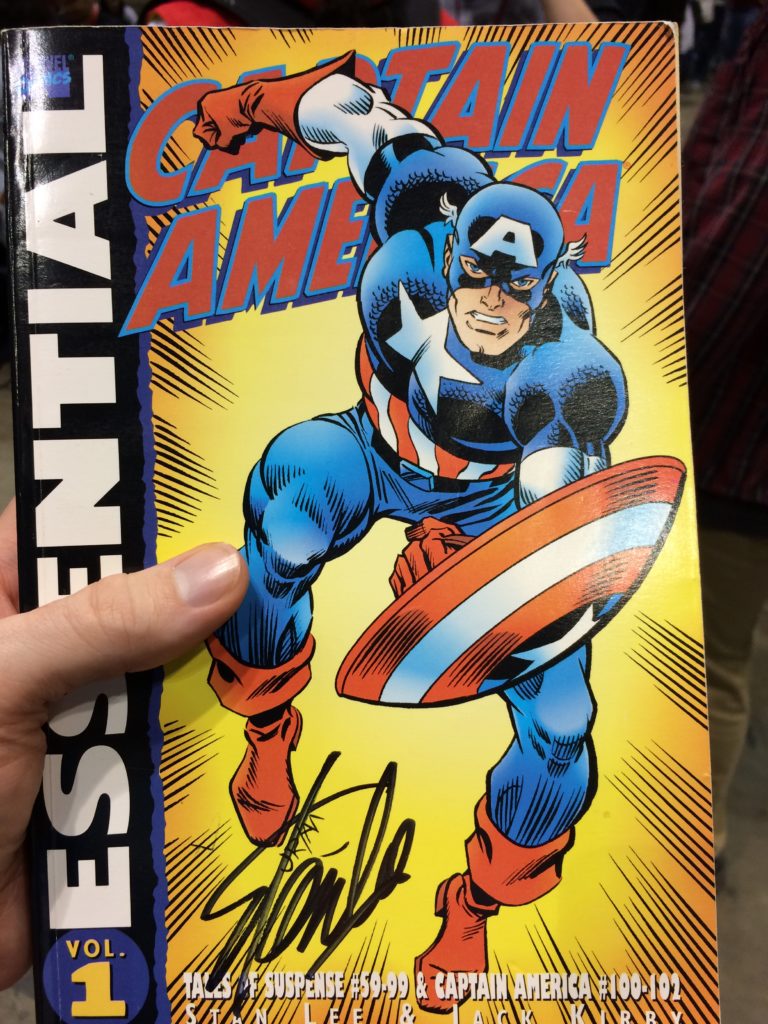
My primary goals for the day after that were to get his autograph and a photo with him. I’d bought a photo-op in advance, but I had to stand in line for the autograph—for 2 ½ hours! It was much like waiting to ride a roller coaster at Cedar Pointe: multi-hour wait for a 60-second thrill. Was it worth it? Oh, heck yes! Again, I made friends with my “line-mates,” several of whom want to check out my books. (Hello to you, new readers!) If I got the chance, I wanted to ask Mr. Lee one of two questions. One wasn’t related to his work while the other was somewhat related. Regarding the former, a lesser-known fact is that Mr. Lee has been married to his one and only wife, Joan, for nearly 70 years(!), so I was gonna ask him what was the secret to a lasting marriage. If not that, I was just gonna ask him for writing advice. However, the organizers had to move the line fast, so I was only able to say, “Hello, Mr. Lee,” to him. Even then, there were two guys sitting on either side of him who had to point me out to him when I said that while he was signing my copy of Essential Captain America, Vol. 1. I guess he really is hard of hearing. He did smile at me, though.
Finally, there was the photo-op. Sergio joined me for that. He’d insisted the day before that he would not join me if I wore my costume, all but demanding that I “dress formal” for Stan Lee out of respect. I got the message, although my garb is more semi-formal. Anyway, it wasn’t nearly as long of a wait for the photo-op, but it was a brief meeting. This time, though, Mr. Lee said, “Hi, fellas!” to us. Sergio boldly went stepped forward and shook his hand, so I did the same, unsure if we were allowed to do so. Nobody said anything. The photo was snapped, and we hurried out.

So, there you have it. I sacrificed going to Indiana Comic-Con the week before to meet their multitude of amazing guests and missed the chance to meet most of the multitude of other guests I liked at C2E2, but it was worth it.
As Stan Lee always says, “Excelsior!”
It’s still Tuesday! I have less than an hour to post a bonus blog this week!
This was originally an essay I wrote for a writers group. Our assignment this month was to write about our favorite character from The Wizard of Oz. It was something I hadn’t considered before, but I figured it out quickly. Considering the film version is one of my mother’s favorite movies, I watched it a lot growing up.
Maybe I should use this character’s song for a ballroom dance showcase…
***
Maybe it’s because he’s the first character Dorothy meets in her journey to Oz. Maybe it’s because his song seems to be the most iconic (and referenced) ditty in what’s already one of the best-known soundtracks in film history. Maybe it’s because, even as a kid, I had great respect for intelligence. Or maybe it’s because he’s the character I see the most of myself in.
 Yes, after thinking about it, with many wonderful characters to choose from, I’ve realized my favorite character in L. Frank Baum’s fantasy classic The Wizard of Oz is the Scarecrow. That lovable straw man who, ironically, wants to have a brain.
Yes, after thinking about it, with many wonderful characters to choose from, I’ve realized my favorite character in L. Frank Baum’s fantasy classic The Wizard of Oz is the Scarecrow. That lovable straw man who, ironically, wants to have a brain.
While I’ve always been in need of more courage and I’m not lacking in heart, the Scarecrow was the character whose plight and desires I understood best. I was always an information sponge. I sought knowledge, useless or not, as much as possible. Yet I often felt like I wasn’t as smart as I wished I was. Sometimes it was because people denigrated me, but mostly it was because of my own perfectionism. Any grades less than A’s weren’t good enough. I didn’t just have to do well, I had to excel. This was especially true when my competition got more intense in college. I had far more people to compare myself to, making me wonder if I was only considered to be “smart” because standards had been lowered.
He was also the one who, in my many viewings of the classic film growing up, I could most easily see developed as a character. As the titular Wizard tells Dorothy’s friends at the end, they were never lacking for the things they sought. However, while the Lion did perform acts of bravery, he did so while whimpering. The Tin Man was certainly compassionate, but that didn’t register with me as much as a kid. The Scarecrow, however, was always the one coming up with clever plans—often on the fly—to help to overcome whatever obstacles he and his friends faced. Whether it was something simple like tricking Talking Trees (one thing all good stories must have) to get their apples for Dorothy or as dangerous as figuring out how to infiltrate the Wicked Witch’s castle. He could think on his feet, and while his plans didn’t always work out, he could find another solution.
This brings me to something else I like about the Scarecrow: leadership. He’s usually the one taking charge of the situation because the Tin Man is overwhelmed by his emotions and the Lion is freaking out. He calms them down and gives them focus. In fact, he’s the one with the coolest head when things get rough, even when they’re being chased by the Witch’s armies. Given that he’s “the man with the plan,” it shouldn’t be surprising.
Finally, I’ve always found the Scarecrow to be the funniest character in the film version. Ray Bolger is fantastic at physical comedy, and his expressions are hilarious. It makes the Scarecrow even more endearing. Just watch him sing his famous song. He moves like how you’d expect a man made of straw to move. Not only is it funny, it’s top-notch characterization. I’ve not really seen that in any other adaptation of the story.
It’s time I ended this little blog. As the Scarecrow himself said, “Well, some people without brains do an awful lot of talking, don’t they?
Who’s your favorite character from The Wizard of Oz and why?
 The title of this blog is a bit misleading. I’m not saying that Christians are terrible at being in romantic relationships. That’s a whole other subject. No, I’m saying they’re terrible at writing stuff like love songs and love stories.
The title of this blog is a bit misleading. I’m not saying that Christians are terrible at being in romantic relationships. That’s a whole other subject. No, I’m saying they’re terrible at writing stuff like love songs and love stories.
This train of thought came about because of a conversation I had with some friends on my personal Facebook page. We were discussing songs I’d consider using for a first dance if I got married, one of which was “Godsend” by dc Talk. One friend commented that she didn’t think that was that good of a song and that most Christian artists were bad at writing love songs. I asked her why she thought that, and she replied (in all caps for humorous emphasis) “BECAUSE OMG(osh) IF PEOPLE LISTEN TO LOVE SONGS THEN THEY MIGHT GET SINFUL IDEAS. PROTECT THE PURITY!!!”
I laughed because it was true.
Since my youth, I’ve known about the three primary words used for “love” in ancient Greek: eros (sexual/romantic love), phileo (friendship), and agape (unconditional love). The latter two were used in the Bible, but not the first. While it was often preached that all three were needed to have a thriving marriage, the huge emphasis was placed on agape because it was correctly said that unconditional love required commitment, and commitment was sorely lacking in many modern marriages. Too often, though, eros was barely acknowledged or it was forgotten, relegated to being the least of the loves.
This, sadly, is a huge fault of western (or just American?) Christian culture. They have so overcompensated for a secular culture that both exploits and worships sex and romance that they have almost demonized it. Now, this isn’t a new problem. There’s always been a sect of ascetics somewhere in Christianity that held to views like this. This was influenced by Gnosticism, a belief that what was of the spirit was good and what was of the body was evil. While it was regarded as heresy, some Gnostic thought has infiltrated some Christian teaching like an insidious disease. This is most true when it comes to Christian culture’s view of sexuality. Sexual desire was equated with the sin of lust. Women’s bodies were seen as weapons of temptation. Men were seen as animals incapable of controlling their urges. This has wreaked havoc on Christian young people, as you might expect. Even I wasn’t totally immune to it growing up despite having sensible parents.
Even if sexuality wasn’t seen as a vice, there were still those who minimized its importance because it was believed Christians—particularly young people—placed too much of an emphasis on romantic feelings and not on “true love.” In other words, agape. Eros didn’t last; it was selfish because it focused on one person and his/her immediate “needs.” It wasn’t what made a marriage last. It’s like eros was the ugly middle child the family acknowledged only out of obligation. I’ve even heard of Christian romance novels (I hate using that term as a genre) where the woman in the couple acts as though she has no sexual desire at all, and this is presented as a good thing!
This is why many Christian creators don’t write much about romance, preferring to focus on agape, phileo, and/or loving God. Those are safer. There are plenty more positive Bible passages on those subjects. They forget the Bible has its fair share of love stories (Jacob and Rachel, Ruth and Boaz, etc.) Heck, if you really want to shock some Christians, make them read Song of Solomon (aka Song of Songs)! Yes, the Bible has love poetry in it—and it’s steamy, at that!
Even when Christians do write about romance, it’s often watered down or presented as an allegory for the love of God for the Church. This, I think, is an example of some Christians becoming, as the old saying goes, “too heavenly-minded to be of any earthly good.” While the Church is called the “bride of Christ,” the Bible never uses romantic language to describe that love. Even the Song of Solomon has been interpreted not as the sultry interactions of two lovers but as a metaphor for Christ and the Church. (I’d love to see how they’d handle passages like this one, then).
God created romance. God created sex. Genesis says God looked at all He created and called it “good.” This included sex and romance. The Bible begins with the “wedding” of Adam and Eve, the first lovers, who were unashamed in their nakedness and love for each other. It was the Fall that ruined things. But sex isn’t a byproduct of sin. The Devil, being evil, is incapable of creating anything. He can only corrupt what was already good. He did the same with sexuality and romance. It’s him who compels humanity to exploit it as a commodity or to worship it as an idol. They were God’s creations, His gifts to mankind. The Devil knows how precious and powerful those gifts are, how they can bind two people together and make them a powerful force for good. That’s why He fears them and wants to see them denigrated.
It’s time Christian creators stopped fearing sex. It’s time they elevated eros as being equal with the other loves. It’s time they took back what was taken from them by the Devil.
I, for one, would love to be a part of that.
Do you think Christian creators need to work on being “romantic”? Why or why not? Can you name any good examples of good love songs or love stories written by Christians? Why do you think Christians are bad at writing romances?
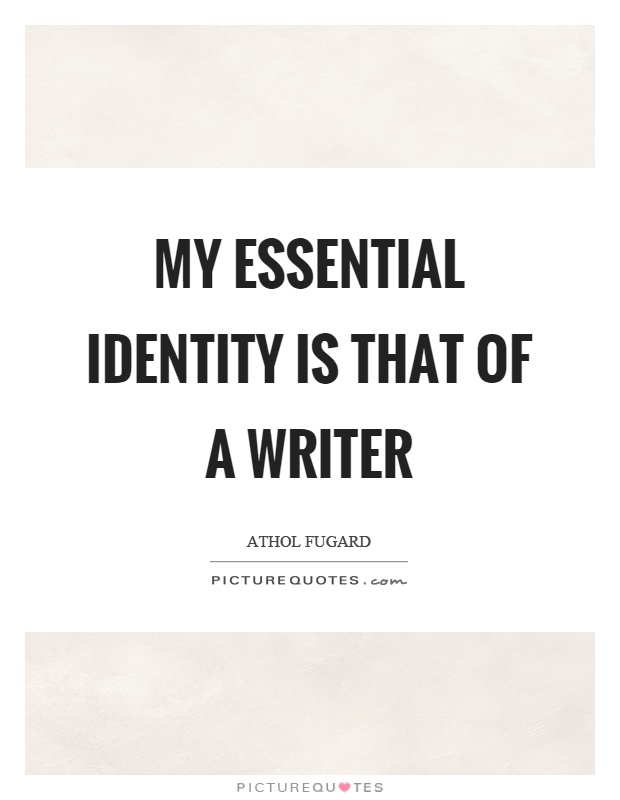 Should I even apologize for neglecting to blog? It’s becoming a bad habit. Sorry, True Believers!
Should I even apologize for neglecting to blog? It’s becoming a bad habit. Sorry, True Believers!
Part of the reason for my absence lately is my increasing busyness. I’ve written often about time management, and while some of my busyness is my own doing, much of it lately has been thrust upon me by outside forces. Most notably, my “day job.” Whenever people quit or are unavailable—as has been happening recently—it invariably throws more responsibility on me because I’m competent, reliable, and available. It’s supposed to be a part-time job, but I’ve been getting full-time hours (which has led me to call it “my part-time full-time job”). This has eaten into my writing time like Pac-Man would an apple.
I’m not happy at my day job.
There, I said it.
I took this job thinking it would be temporary and would allow me time to pursue my true passions. While I’m grateful to have the steady income and enjoy (most of) my co-workers, I feel like I’m not doing what God created me to do. When I have to work long hours and lose writing time, I feel this most potently. I get annoyed when people see me not as a writer, an author, an artist, and/or a creator but as my day job. I don’t care if it’s, unfortunately, where the majority of my time is going. It does not define me. It is not what I want to be doing. If I had my way, I’d be living like most of the great writers, who spend eight hours a day working away on their craft.
 As you would expect, I’ve been reflecting on my identity. I think of myself as a writer. That’s what I tell people I do for a living. Yes, I add that I’m working a part-time day job until I can write full-time, but writing is always mentioned first and foremost. That’s why I hate when I have weeks (or months) where the day job consumes more of my time. I start to feel like I’m lying to people. Most of all, I fear complacency will seize me, and I’ll stop writing, resigned to the humdrum of my daily labor.
As you would expect, I’ve been reflecting on my identity. I think of myself as a writer. That’s what I tell people I do for a living. Yes, I add that I’m working a part-time day job until I can write full-time, but writing is always mentioned first and foremost. That’s why I hate when I have weeks (or months) where the day job consumes more of my time. I start to feel like I’m lying to people. Most of all, I fear complacency will seize me, and I’ll stop writing, resigned to the humdrum of my daily labor.
However, in order to have a healthy identity, I believe, one must have a multifaceted one. I’m not just a writer. I want that to be a bigger part of me (and I do believe it is already a big part), but it isn’t all of my identity. Lisa Edelstein said in the movie Keeping the Faith, “I am many things, no one thing defines me.” (FYI, I found that quotation with a Google search. I’ve not seen the movie). I’m also a Christian, a man, a brother, a son, a conservative, a gamer, and a ballroom dancer, among many others. By having so many smaller identities within my larger one, it prevents me from becoming totally dependent on any one of them for my self-worth. I could, God forbid, be in a car accident tomorrow that damages my hands or my brain, thereby robbing me of the ability to write. It would be devastating, but hopefully once the dust of grief settled, I’d have other things to fall back on to form a new identity.
In the meantime, I’m gonna keep fighting to preserve and protect my writing time!
What facets make up your identity? Are you too dependent on one or two? If you’re a writer, what else are you? How would you cope with losing part of identity?